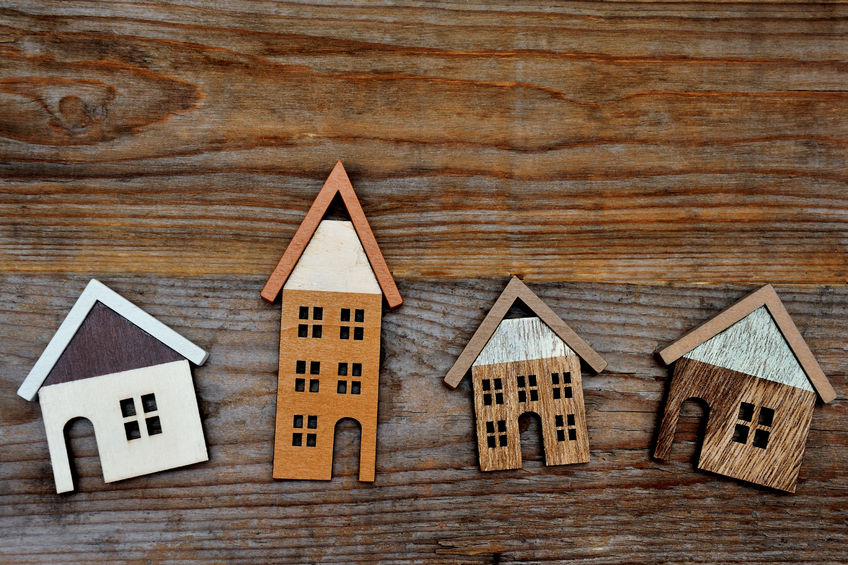
The Four Ways to Make Money in Owning Real Estate
This post may contain links from our sponsors. We provide you with accurate, reliable information. Learn more about how we make money and select our advertising partners.
I’ve said it before and I’ll say it again: real estate investments are some of the best ways to achieve wealth and financial freedom. And if you’ve read my other posts, you know that there are quite a few ways to invest in real estate – I’ve mentioned everything from crowdfunding to syndications and funds.
However, I firmly believe that one of the best ways to invest in real estate is through direct ownership. As with anything, this method has its pros and cons, but for this post, I want to focus on the four major ways one actually makes money through owning real estate.
Appreciation
First up is simply appreciation in value. This is the concept of a home’s value increasing over time. We all know home values can fluctuate significantly—we saw a lot of this way back in 2008. Still, in the long run, the overall value of homes seems to increase at a rate at least in line with inflation (around 3-5%). That’s passive appreciation as a result of time.
However, there is also something called forced appreciation. This is where an owner can help increase the value of a property by improving the property itself. For example, you might renovate the kitchen and bathrooms in a home enabling you to sell it at a higher value.
If it’s an apartment building, you might be able to raise rents and lower expenses, thereby increasing the overall net operating income. This, in turn, increases the building’s value.
Cash Flow
This is simply what’s left over from the rental income when the expenses are paid off each month. If there’s a surplus, that’s positive cash flow. If there’s a deficit, you have negative cash flow.
For example, if you collect $5,000 in rent each month and your expenses are $4,000, then your cash flow is $1,000 each month. Cash flow puts money in the bank and is essentially monthly income that you can live off of.
These first two categories are the only ones most people think about when it comes to real estate investing. But as you’re about to see, there’s two more!
Taxes
Owning a property is somewhat analogous to being a small business owner, and because of that, you’re able to deduct quite a few expenses.
Some of the more common deductible expenses are any sort of funds put towards fixing up the property, paying property management expenses, and tax preparation.
Another big benefit is depreciation, whereby the IRS allows you to determine the value of the actual building, divide that value by 27.5 (the useful life of a property as determined by the IRS), and deduct that precise amount each year.
For example, if your rental property (the building itself) is valued at $500,000, you would divide that by 27.5 years (which equals ~$18,000) and be able to deduct $18,000 as a depreciation expense each year for 27.5 years. This deduction allows you to report a smaller profit to the IRs, thereby reducing the amount you ultimately owe in taxes.
Of course, as I mentioned in a previous post, using a 1031 exchange may allow you to defer taxes from any sale indefinitely.
Mortgage Principal Paydown
Most properties are purchased using amortized loans, wherein a portion of the monthly loan payment goes towards interest and a portion goes towards reducing the principal. That means that every month, a little bit of that principal is being whittled down and your equity in the property is increasing.
In essence, by having your rental income pay off your mortgage, they're buying you the property little by little.
Tying it all together
Now we need a quick example to tie it all together.
You purchase an apartment building for $800,000 and put down $250,000 (like I did). Let's say this property produces $30,000 per year in cash flow and appreciates in value at 4% per year. After 10 years, this property could be worth $1.18 million, and you would’ve earned $300,000 in cash flow.
Assuming a normal amortized paydown schedule, in 10 years you're left owing $430,000 to the bank, so your equity in this property is now $750,000 (=$1,180,000-$430,000), which is triple your initial investment of $250k. Adding up the cash flow, you’ve also received $300,000 in cash flow during this time.
Of course, this $300,000 over time is subject to taxes, but because of the benefits afforded real estate investors (like depreciation), you would definitely walk away with more than if it was simply all capital gains.
Did you follow that? It’s important because putting these four things together is how many real estate investors achieve very nice returns over time. This is not a get-rich-quick scheme by any means, but over time, these methods can pay huge dividends and create great wealth.
If you’ve considered real estate investments in the past, utilize these four methods to get the best return possible.
Are you ready to start your journey by creating passive income through real estate? Then click below to the waitlist for our next class season. We will take you from zero to confident. There is no obligation to join our waitlist! See you on the inside!
Disclaimer: The topic presented in this article is provided as general information and for educational purposes. It is not a substitute for professional advice. Accordingly, before taking action, consult with your team of professionals.


